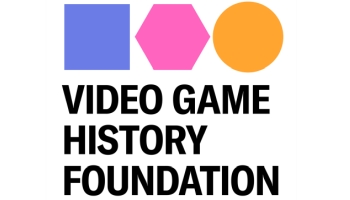
Thousands of games for the Wii, Wii U, DS, 3DS, and PSP became permanently unavailable after Nintendo and Sony shuttered the digital storefronts on their previous-generation platforms over the last few years. And while they remain available for now, similar closures are on the docket for the Xbox 360 Marketplace and the PlayStation Store for the PS3 and Vita.
These are just the most visible examples of a problem that has always plagued the video game industry, but it’s getting worse. A new study by the Video Game History Foundation has found that 87% of all games released in the United States before 2010 are now unavailable to purchase.
How does something like this even happen? And is there anything we can we do about it?
 Insert Quarter is a glimpse into gaming’s past, present, and future through an exploration of historical, retrospective, and contemporary reporting.
Insert Quarter is a glimpse into gaming’s past, present, and future through an exploration of historical, retrospective, and contemporary reporting.
First, you might be asking, what does it mean for a game to be unavailable? You’ll often hear of books going out of print, and the same is true for games. As much as we’d like them to, Nintendo isn’t producing any additional copies of Mike Tyson’s Punch Out!! for the NES or Pokemon Blue for the Game Boy.
If you’re not a stickler for original hardware, there are still plenty of retro games to play in 2023. You just need access to an online subscription service (like Nintendo Switch Online, which does include the Tyson-less version of Punch-Out!!) or a modern compilation (such as Microsoft’s Rare Replay or Capcom’s Mega Man Legacy Collection).
But then you look at that 87% number again and you realize that the vast majority of games have not (and likely will never) receive that kind of modern adaptation. Kelsey Lewin, the Video Game History Foundation‘s Co-Director, pointed out the absurdity of this situation in a blog post about their study:
The Video Game History Foundation, in partnership with the Software Preservation Network, has conducted the first ever study on the commercial availability of classic video games, and the results are bleak. 87% of classic video games released in the United States are critically endangered.
Imagine if the only way to watch Titanic was to find a used VHS tape, and maintain your own vintage equipment so that you could still watch it. And what if no library, not even the Library of Congress, could do any better — they could keep and digitize that VHS of Titanic, but you’d have to go all the way there to watch it. It sounds crazy, but that’s the reality we live in with video games, a $180 billion industry, while the games and their history disappear.
87% Missing: the Disappearance of Classic Video Games
Library Director Phil Salvador expanded on what the results of this study mean in an additional explainer article for the Video Game History Foundation, detailing the methodology behind the count and how the availability of classic games tracks pretty closely with early audio recordings and silent films:
“Most classic games are no longer in print” might sound like an obvious statement for us to write a 40-page study about. And it is! The retrogaming community knows from experience that most games are no longer available. Anyone who’s tried to research old video games has probably run into a situation where they can’t get a copy of the game they’re studying. That’s the reality of the video game market.
However, this isn’t widely known outside the gaming community, and it’s not easy to prove. From the outside, it certainly doesn’t look like there’s a problem. You can fire up your Switch and get Super Mario Bros. and Pac-Man. You can buy a new copy of Final Fantasy VII for just about every platform. There’s certainly a market for classic game re-releases, and as far as the game industry is concerned, business is booming.
So there’s confusion about the state of the market for classic games. So what? That might not seem like a big deal, but it has big implications for game preservation and copyright reform.
The Game Availability Study, Explained
The Video Game History Foundation has made the full study available for free on the academic repository Zenodo. It is an incredibly thorough look at how most of your childhood favorites (including the aforementioned Pokemon Blue) have gone out of print, and how it’ll keep happening to the games of today if something isn’t done.
While an ideal scenario would be for game publishers to unlock their vaults and re-release everything, that’s not going to happen. But what we can do is push for more copyright exemptions for game preservation and give libraries and archives the ability to make these games available for future generations:
Video games are part of our cultural history. The video game industry and cultural heritage institutions agree that video games should be preserved for both entertainment and study. As part of that effort, a growing market has emerged for reissuing historical games, popularly called retro games or classic games.
Despite this, the availability of historical games is generally understood to be limited. This is due to a variety of factors, including technical constraints, complicated rights issues, rightsholder disinterest, and the long-term volatility of digital distribution platforms. The scale of this problem is troubling for anyone hoping to access games, but it is particularly critical for the cultural heritage field, which depends on the ability to access historical video games for research and must otherwise rely on unauthorized means to access them.
Although the game industry agrees with the cultural heritage field that preservation is important, they disagree about how severe this problem is and how to address it. Industry lobbyists in the United States have opposed new copyright exemptions for game preservation on the grounds that there is already a thriving reissue market. While a healthy market for certain game reissues does exist, it is overshadowed by the volume of games that remain unavailable.
Survey of the Video Game Reissue Market in the United States
The Video Game History Foundation continues to do the necessary work that needs to be done to make that history accessible to more people, and though I’m sure they hear it all the time, we all owe Kelsey Lewin, Phil Salvador, and Frank Cifaldi our thanks.
UPDATE (10/25/24): The US Copyright Office announced today that they would not be granting a new exemption for video games in the Digital Millennium Copyright Act (DMCA). The Video Game History Foundation responded with a statement of resigned frustration, but also promised to continue to fight to expand video game preservation:
The US Copyright Office announced today that they would not grant a new exemption in the Digital Millennium Copyright Act (DMCA) in support of video game preservation. (see p.29)
For the past three years, the Video Game History Foundation has been supporting the Software Preservation Network (SPN) on a petition to allow libraries and archives to remotely share digital access to out-of-print video games in their collections. Under the current anti-circumvention rules in Section 1201 of the DMCA, libraries and archives are unable to break copy protection on games in order to make them remotely accessible to researchers.
While we are disappointed by the Copyright Office’s decision (see p. 191 of the Register’s Recommendation), we have no regrets about going through this process. Over the last three years, working on the petition has helped us generate important research, notably our Survey of the Video Game Reissue Market in the United States report, which proved that around 87 percent of video games released in the United States before 2010 remain out of print. Our combined efforts with SPN have raised significant public awareness of these issues and have already made an impact throughout the game industry and preservation communities.
Statement on the DMCA 2024 triennial review ruling
Opposition to this exemption is mostly led by the Entertainment Software Association. Let them know you support game preservation, and that you want to see games given the same protections as books and movies, by messaging them through the Contact Form on their official website.

